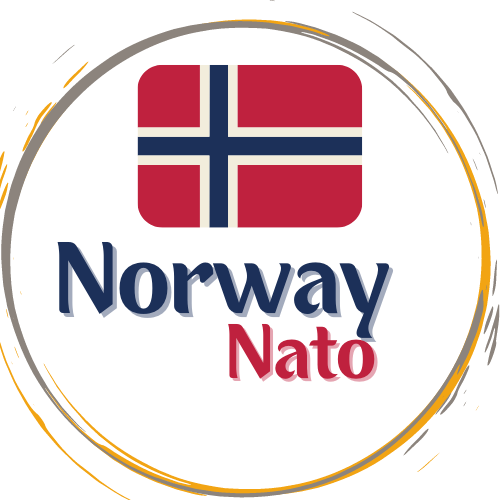The worlds of philosophy and literature have long been entwined in a dance that reveals the profound depths of human experience and thought. Where one discipline seeks to question the very essence of existence, morality, and knowledge, the other crafts narratives that breathe life into these abstract inquiries. The relationship between these two realms is not merely academic but rather a vibrant conversation that enriches our understanding of what it means to be alive. As readers and thinkers alike turn to the pages of novels, plays, and poems, they discover that the questions posed by philosophers resonate deeply within the tales spun by writers. This exploration invites us to consider how stories illuminate the most challenging and enduring questions of our time, offering not just answers but a richer appreciation of the complexities inherent in the human condition.
The symbiotic relationship between philosophical thought and narrative fiction
The connection between philosophical inquiry and narrative fiction is one of mutual enrichment. Philosophers have long recognised that abstract ideas can be difficult to grasp when presented solely through formal argumentation or logical analysis. Literature, with its capacity to embody ideas in characters, settings, and plots, offers a tangible form through which these concepts can be explored. When a novel delves into questions of identity, freedom, or justice, it does so not through sterile debate but through the lived experiences of its characters. This transformation of the abstract into the concrete allows readers to engage with philosophical themes on an emotional and intuitive level, making the exploration of such ideas both accessible and profoundly moving. In turn, the philosophical underpinnings of a narrative provide structure and depth, ensuring that the story resonates beyond mere entertainment and touches upon universal truths that have preoccupied thinkers for centuries. Resources such as callecultura.es serve as valuable platforms for readers and scholars interested in this intersection, offering insights into how cultural and intellectual traditions have shaped the narratives we cherish today.
How literary storytelling illuminates abstract philosophical concepts
One of the most compelling aspects of literature is its ability to render the intangible visible. Philosophical concepts such as existentialism, utilitarianism, or the nature of consciousness can seem remote or overly theoretical when confined to the pages of a treatise. Yet when a novelist takes up these themes, they are woven into the fabric of a story that readers can see, feel, and question alongside the characters. Consider the way in which a protagonist's internal struggle with the meaning of life or the weight of moral choice becomes a mirror for our own uncertainties. Through dialogue, action, and introspection, literature allows us to witness the unfolding of philosophical problems in real time, revealing the tensions and ambiguities that pure logic might obscure. This narrative approach does not simplify the issues at hand; rather, it complicates them in ways that are true to life, demonstrating that philosophical questions are rarely answered with a single formula. By immersing ourselves in these stories, we gain not only intellectual insight but also emotional resonance, as we recognise our own doubts and dilemmas reflected in the experiences of fictional lives.
The Role of Narrative Structure in Conveying Philosophical Depth and Meaning
Narrative structure itself is a philosophical tool, shaping the way ideas are presented and understood. The choices an author makes regarding point of view, temporality, and plot development all contribute to the philosophical argument embedded within the text. A fragmented narrative might suggest the instability of memory or the fluidity of identity, while a linear progression could underscore the inevitability of fate or the quest for knowledge. In this way, the very architecture of a story becomes a means of exploring philosophical themes, inviting readers to question not only what is being said but also how it is being said. The interplay between form and content reveals that literature is not merely a vessel for philosophical ideas but an active participant in their creation and interrogation. When a writer experiments with narrative techniques, they are simultaneously experimenting with the boundaries of meaning and understanding, pushing readers to engage with the text on multiple levels. This dynamic relationship ensures that the study of literature and philosophy together offers insights that neither discipline could achieve in isolation, as each illuminates the other in unexpected and transformative ways.
Literature as a Mirror for Ethical and Existential Questions
 At its heart, literature has always been a space where ethical and existential questions are not only posed but lived. The pages of a novel or the lines of a play become arenas in which characters confront the fundamental challenges of existence, from the search for meaning to the navigation of moral complexity. These narratives serve as a mirror, reflecting back to us the dilemmas we face in our own lives and inviting us to consider how we might respond in similar circumstances. By engaging with these stories, readers are offered the opportunity to rehearse their own ethical reasoning and to explore the consequences of different choices without the immediacy of real-world stakes. This imaginative exercise is both deeply personal and universally relevant, as the questions addressed are those that have troubled humanity across cultures and epochs. Literature thus becomes a companion in our quest to understand ourselves and our place in the world, providing not definitive answers but rather a rich tapestry of perspectives and possibilities.
At its heart, literature has always been a space where ethical and existential questions are not only posed but lived. The pages of a novel or the lines of a play become arenas in which characters confront the fundamental challenges of existence, from the search for meaning to the navigation of moral complexity. These narratives serve as a mirror, reflecting back to us the dilemmas we face in our own lives and inviting us to consider how we might respond in similar circumstances. By engaging with these stories, readers are offered the opportunity to rehearse their own ethical reasoning and to explore the consequences of different choices without the immediacy of real-world stakes. This imaginative exercise is both deeply personal and universally relevant, as the questions addressed are those that have troubled humanity across cultures and epochs. Literature thus becomes a companion in our quest to understand ourselves and our place in the world, providing not definitive answers but rather a rich tapestry of perspectives and possibilities.
Examining Moral Dilemmas and the Human Condition Through Literary Works
Moral dilemmas are the lifeblood of compelling storytelling, and literature excels at placing characters in situations where no clear right answer exists. These moments of choice reveal the complexity of the human condition, as individuals must weigh competing values, navigate conflicting loyalties, and confront the limits of their own understanding. Through such scenarios, readers are invited to step into the shoes of the protagonist and to grapple with the same uncertainties and pressures. The ethical questions raised are rarely simple; they involve nuances of context, character, and consequence that resist easy resolution. This refusal to provide tidy solutions is one of literature's greatest strengths, as it honours the messiness of real life and encourages readers to think critically about their own moral frameworks. By immersing ourselves in these narratives, we come to appreciate the weight of ethical responsibility and the difficulty of living according to one's principles in a world that is often ambiguous and unforgiving. The exploration of such dilemmas is not an abstract exercise but a vital part of what it means to be human, as we strive to understand the values that guide us and the choices that define us.
Authors Wrestling with Existence, Knowledge, and the Nature of Reality in Prose
The great works of literature are often those in which authors dare to wrestle with the most profound questions of existence. What does it mean to know something, and how can we be certain of our perceptions? Is there an inherent purpose to life, or must we create meaning for ourselves? These questions, which have occupied philosophers for millennia, find new expression in the narratives of writers who use prose as a means of exploration and discovery. Through the experiences of their characters, authors interrogate the nature of reality, the reliability of knowledge, and the limits of human understanding. In doing so, they invite readers to join them in this inquiry, to question their own assumptions and to consider alternative ways of seeing the world. The result is a body of work that is as intellectually rigorous as it is emotionally engaging, demonstrating that literature is not merely a reflection of philosophical thought but an essential contributor to it. By studying where philosophy and literature meet, we gain a broader understanding of both disciplines, recognising that each enriches the other and that together they offer a fuller picture of the human experience. This intersection is a testament to the enduring power of storytelling and the timeless relevance of philosophical inquiry, reminding us that the search for truth and meaning is a journey we undertake both in the pages of books and in the course of our lives.




